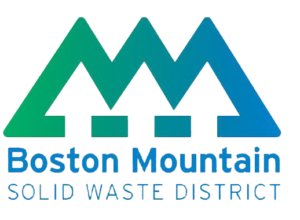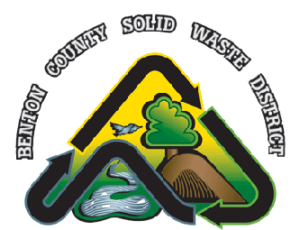A five-year plan shared this week outlines how Northwest Arkansas communities can improve recycling access, modernize infrastructure and reduce the amount of recyclable material sent to landfills.
The Northwest Arkansas Recycling Roadmap, created by The Recycling Partnership and funded by the Walmart Foundation, is a coordinated strategy to strengthen recycling. It sets two key goals by 2030: increase household recycling participation by 25% and recover 25% more recyclable material.
With more than 600,000 residents and one of the fastest-growing populations in the nation, Northwest Arkansas faces increasing pressure on solid waste and recycling-related systems. According to the Northwest Arkansas Recycling Roadmap, just 52% of residents are satisfied with current recycling services, and an estimated 117,000 tons of recyclable materials are lost to landfills each year. Access to curbside recycling varies widely across the region.
The Northwest Arkansas Council assisted The Recycling Partnership by convening recycling stakeholders in a yearlong planning process, bringing together cities, solid waste districts, haulers and industry partners to evaluate gaps and identify priorities.
Local leaders say the timing is critical. “I would tell you that we’ve never been in a better position to actually move the needle and solve this issue for Northwest Arkansas than today,” Rogers Mayor Greg Hines told Axios. “You can’t go spend $6 million or $8 million building a material recovery facility and still have fractured messages. So if we can’t get this right, then we just need to keep our hand on our wallets and keep being hopeful going down the road.”
The plan outlines a series of high-impact projects, including replacing outdated bin-sort systems with modern carts, expanding curbside collection in cities such as Bella Vista, and improving access for multifamily housing and commercial buildings. It also recommends upgrades to local processing facilities such as the one operated by CARDS in Springdale to someday handle more materials, including glass and cartons.
Regional coordination is another priority. Aligning contracts, education efforts and gathering recycling-related data across jurisdictions is expected to improve service delivery and reduce confusion for residents.
The total cost to implement the roadmap is estimated at $53 million over five years. About half of the amount is already funded as part of existing city budgets and service fees. The remaining investment will rely on grants, catalytic capital and operational support.
Pilot efforts are already underway. In Springdale, a new education campaign is using truck-mounted cameras, personalized mailers and multilingual outreach to improve participation and reduce contamination.
The full Northwest Arkansas Recycling Roadmap is available on The Recycling Partnership webpage.













